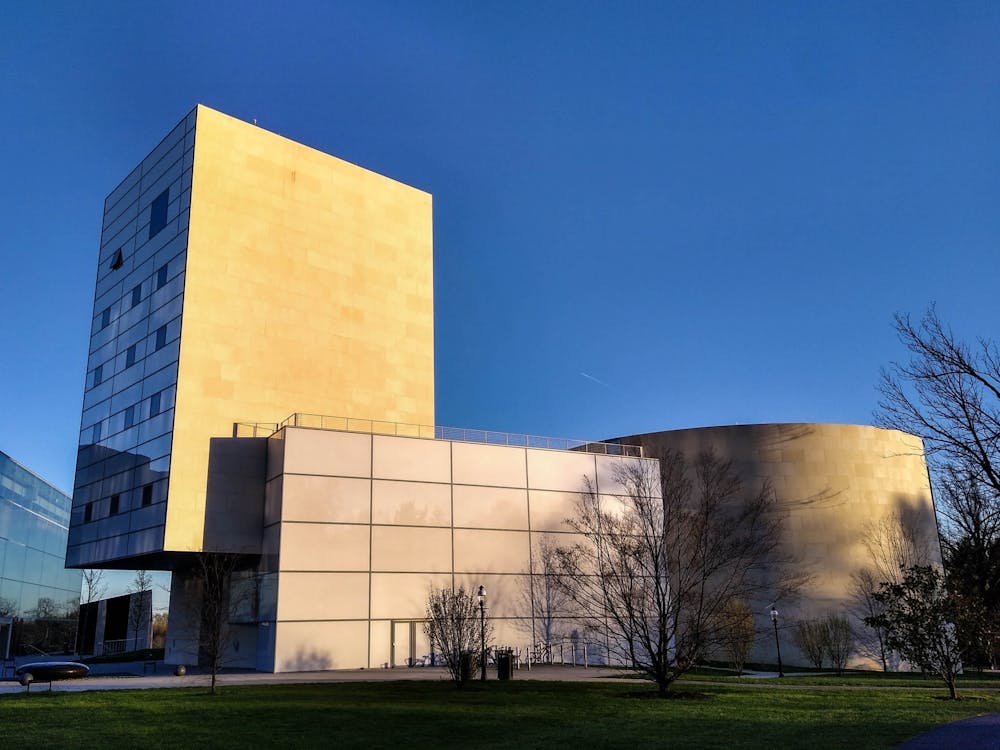In honor of the centennial anniversary of the Broadway debut of the all-Black musical “Shuffle Along” and the Tulsa Race Massacre, the Lewis Center for the Arts has teamed up with CLASSIX — a non-profit organization dedicated to “celebrating classic plays by Black playwrights” — to host a symposium of artists, journalists, and scholars to connect these seemingly discrete events.
The symposium has two parts and is free and open to the public, though attendees must register on the symposium website beforehand. On Sept. 9 from 7:30–9 p.m., part one featured a reunion of “Shuffle Along, or, The Making of the Musical Sensation of 1921 and All That Followed,” a 2016 musical with a nearly all-Black cast documenting the struggles of the original “Shuffle Along.”
Part two is the symposium, called “REACTIVATING MEMORY, ‘Shuffle Along’ and the Tulsa Race Massacre: A Centennial Symposium.” A daylong event on Sept. 10 from 9:30–4:30 p.m., the symposium features performances and panel discussions from artists, poets, and dancers.
The symposium was organized by Catherine Young, a lecturer in the Princeton Writing Program; Michael J. Love, a tap dance artist and a 2021–23 Princeton Arts Fellow; Stacy Wolf, a theater professor in the Lewis Center for the Arts; and CLASSIX members Brittany Bradford, A.J. Muhammad, Dominique Rider, Arminda Thomas, and Awoye Timpo, who is a founder of CLASSIX.
The symposium, which is funded by the Humanities Council, has been in the works for about a year. The partnership between CLASSIX and the Lewis Center for this symposium came about serendipitously: CLASSIX was already working with the Lewis Center on another project, and Timpo was the assistant director for the 2016 “Shuffle Along” that had inspired Young to begin putting together the “REACTIVATING MEMORY” symposium in the first place.
Having CLASSIX as a collaborator also pushed the symposium toward having a more interdisciplinary approach, with artists working in a larger range of mediums. Young credits Thomas in particular for encouraging the organizers to broaden the program and make it engaging for a larger audience. This interdisciplinary approach was further solidified when Love joined the team and brought his tap dancing expertise to the symposium. Love choreographed a short piece for the symposium, a collection of performances which he calls “#SampledMixedAndRemixed.”
“Sharing work as part of the Symposium has allowed me to think through the theme in an embodied way — through rhythm tap dance improvisation and a sort of live music composition,” said Love in an email to The Daily Princetonian. “Folks who join us will see me isolate a portion of a late 1920s/early 1930s recording of Duke Ellington’s ‘Rockin’ In Rhythm’ and use a looping pedal and beat machine to imagine what a house music remix of this tune may sound like.”
He added, “This is how I speculate on ways that Black histories may be transposed into current and future contexts. While what folks will see of this during the symposium is more experimental, I hope to work with this tune in similar ways again in the future.”

In addition to the interdisciplinary approach, the symposium is an impressive feat of organization between the collaborators, since they worked on the symposium while balancing other jobs and commitments.
“Sometimes reaching consensus was a little challenging,” said Young in an email to the ‘Prince.’ “There were difficult conversations about representing violence, the politics of land acknowledgements, blackface, and other complex topics. CLASSIX member A.J. Muhammad always brought a calm and thoughtful perspective to everything, and that helped us identify paths forward when we’d hit an impasse.”
Marissa Michaels ’22, who helped work on the symposium, was impressed with how intentional the organizers were with every decision that they made and how collaborative the effort was overall.
Michaels is an associate news editor for the ‘Prince.’

Love had a similarly positive experience working on the symposium.
“Being a part of the planning committee was a wonderful experience,” Love said. “I was able to work closely with Dr. Young, Dr. Wolf, and several members of the CLASSIX collective, including Awoye Timpo, A.J. Muhammad, Dominique Rider, Arminda Thomas, and others. Planning this symposium was a great way for me to transition into my time as a Princeton Arts Fellow at the Lewis Center.”
The name “REACTIVATING MEMORY” was suggested by Timpo after it came up as a major theme for the symposium at large, allowing the organizers to better blend the disciplines across which they were working — the arts, history, and journalism.
“For me, the most rewarding part of planning the symposium is the sense that we can actually impact artistic and intellectual communities at Princeton and beyond,” Young said. “With so many difficult societal struggles that sometimes seem insurmountable, it’s gratifying to bring people together in a spirit of community and exploration [...] I also encourage readers to learn more about Black Theatre United’s recent ‘New Deal for Broadway’ as an example of structural reform, and to learn more about Human Rights Watch’s work on ‘The Case for Reparations in Tulsa, Oklahoma.’”
For those interested in learning more about “Shuffle Along” and the Tulsa Race Massacre, there is a supplemental resource website with learning modules put together by Michaels in the hopes that the impact of the symposium will not be limited to just two days. Additionally, there will be a class in the spring taught by Thomas and Young tentatively titled “Excavate/Illuminate” that might be of interest. Cultural critic Soraya Nadia McDonald, who was initially intended to be the keynote speaker at the symposium but had to step down from the position, will also be a short-term visiting fellow for the Humanities Council in the spring.








